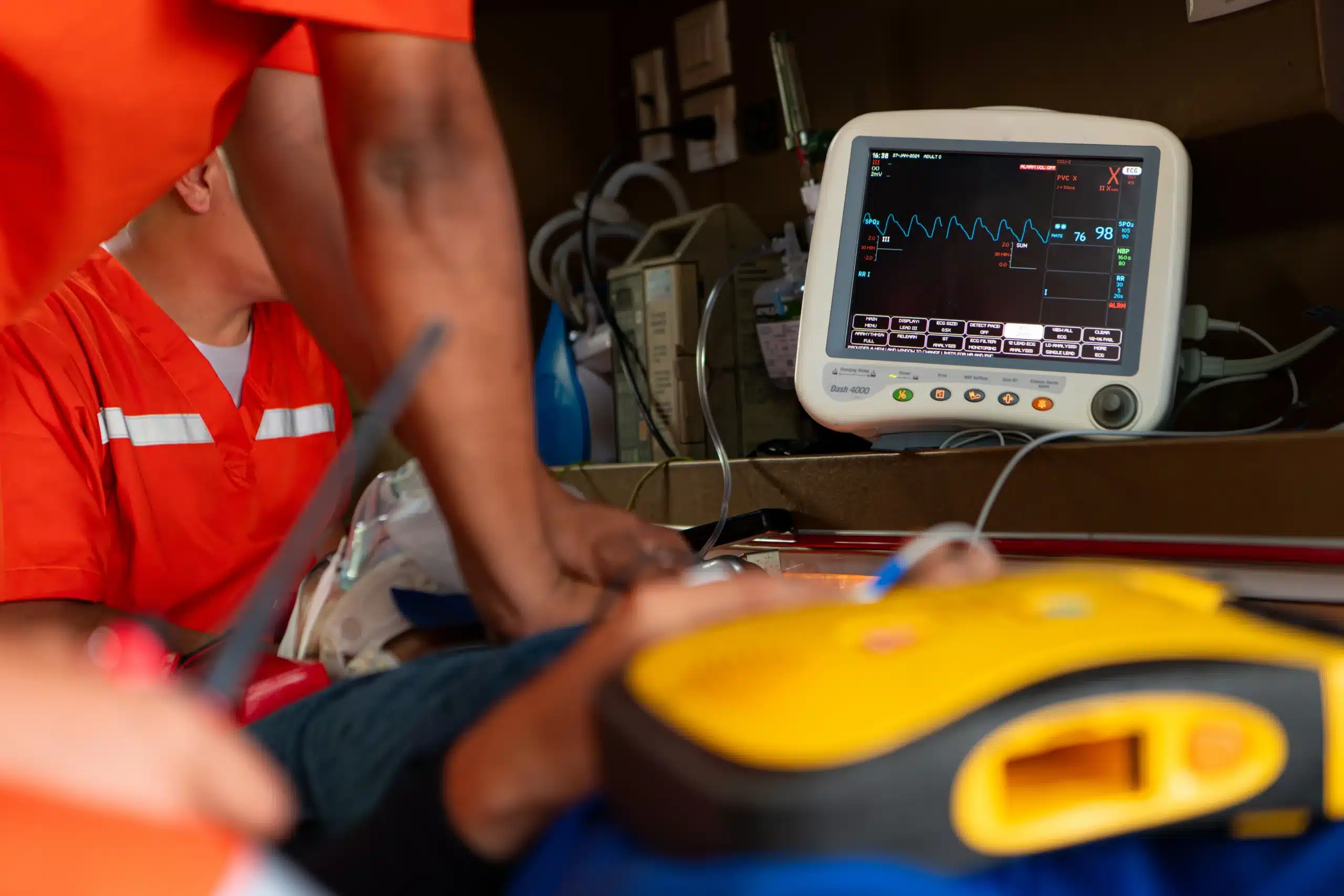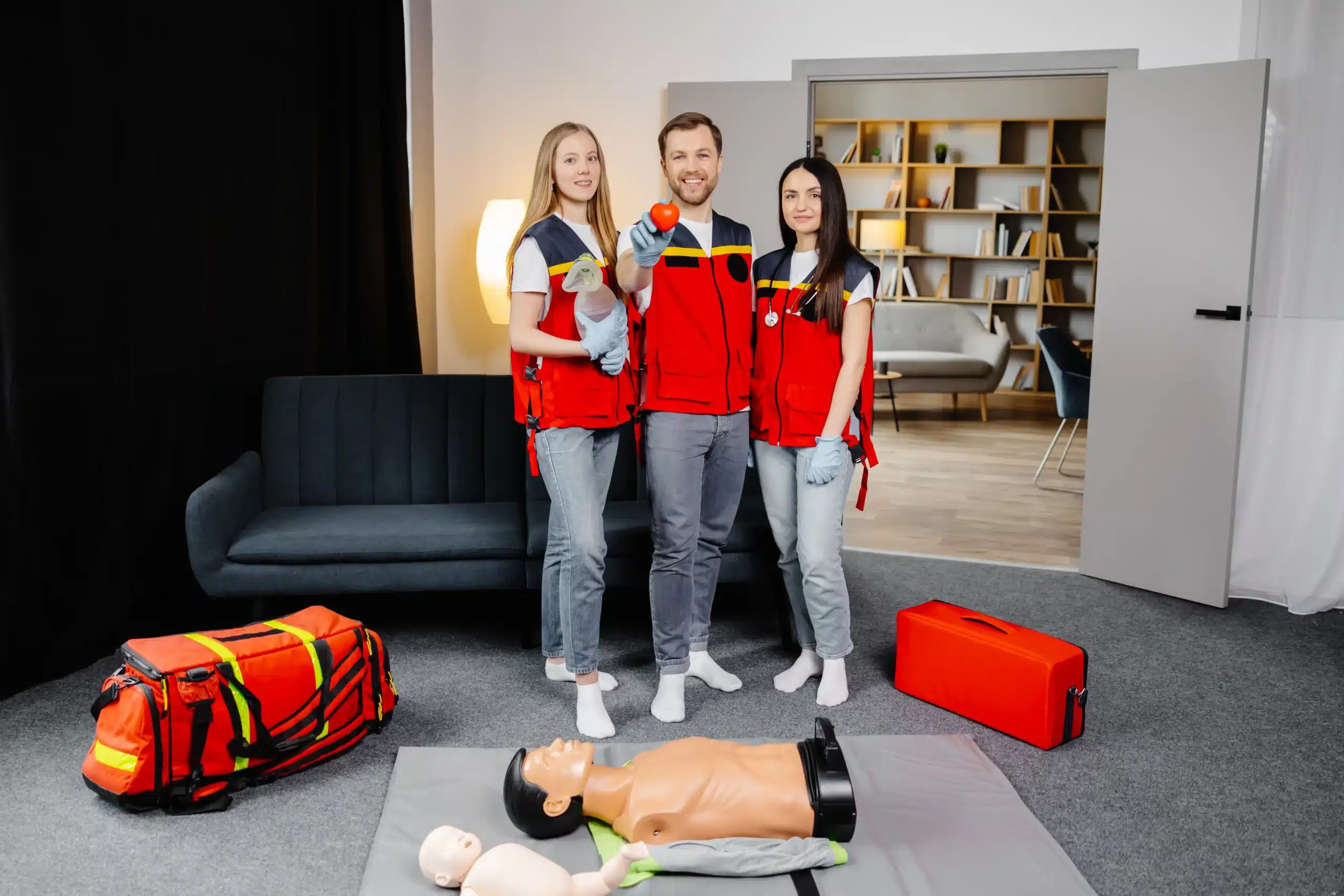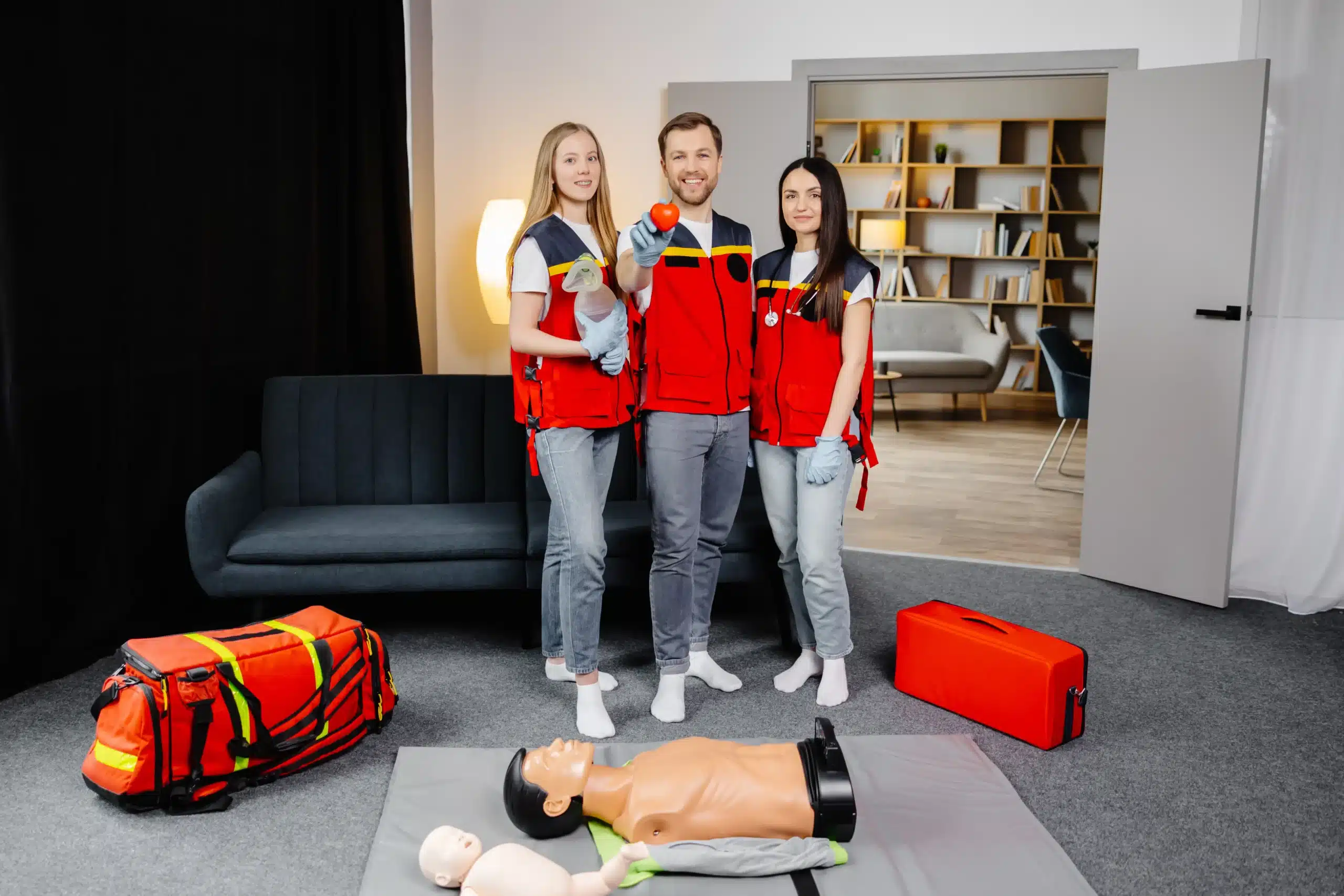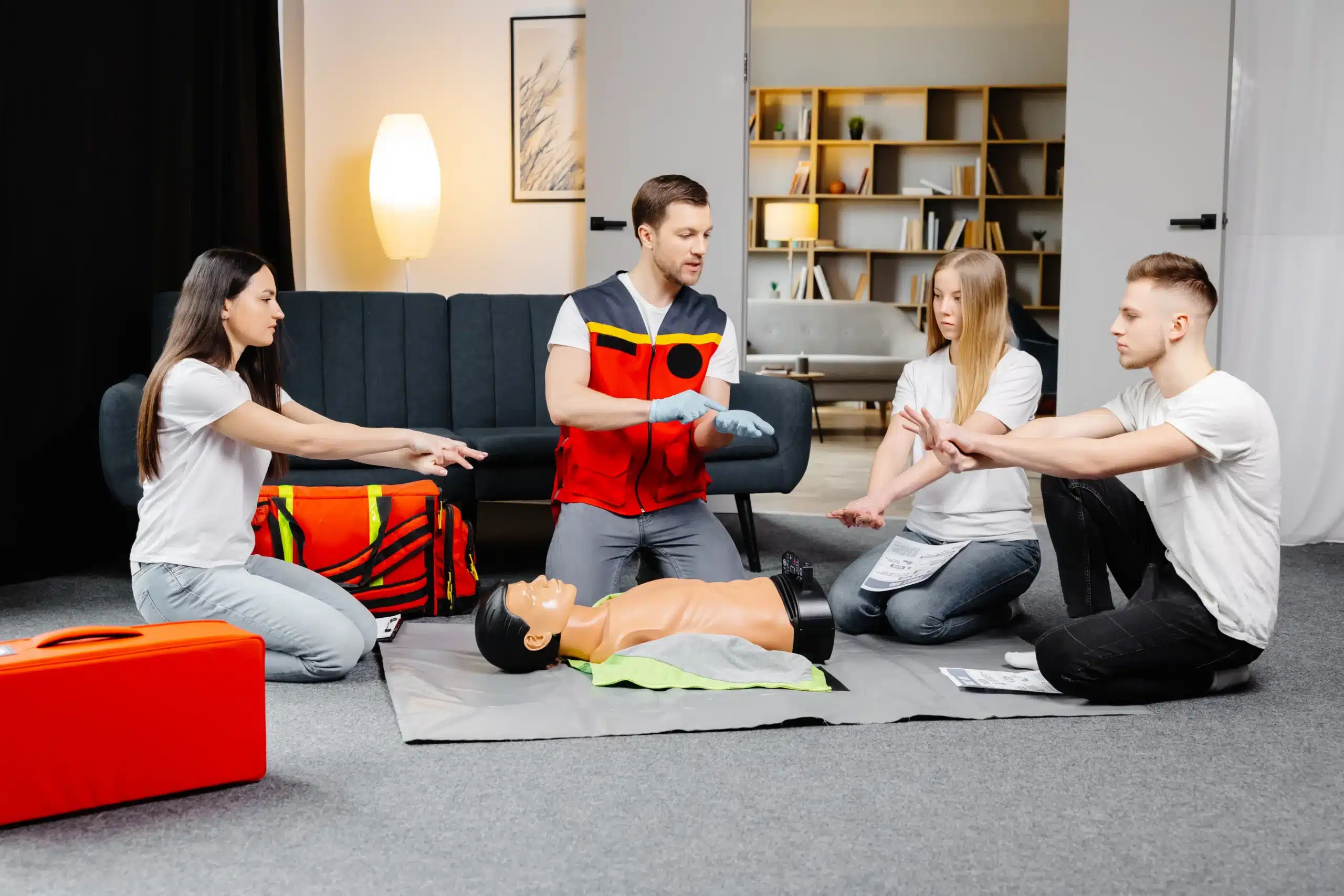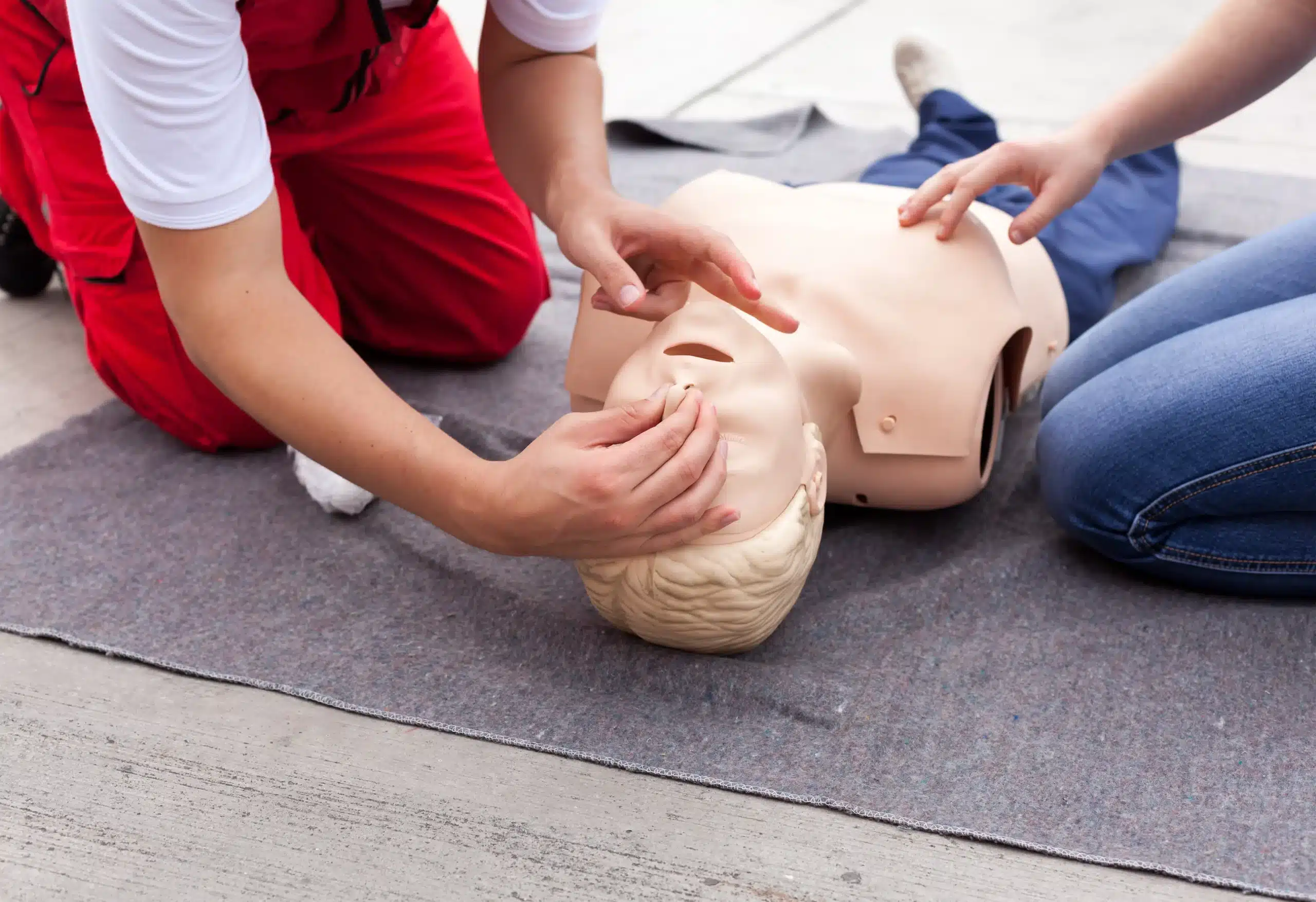As a healthcare professional in Napa, your dedication to providing the best possible care is unwavering. When it comes to children’s health, having the right skills in an emergency can make all the difference. Pediatric Advanced Life Support (PALS) certification is more than just a credential—it’s a testament to your commitment to providing high-quality care for young patients. If you’re looking for a convenient and effective way to earn your PALS certification, online PALS classes in Napa offer the flexibility and comprehensive training you need. This article will guide you through everything you need to know about online PALS classes, from course content to registration and recertification.
Key Takeaways
- PALS certification equips you with life-saving pediatric skills: From recognizing respiratory distress to managing cardiac arrest, PALS training provides the knowledge and practical skills needed to confidently handle pediatric emergencies. Safety Training Seminars offers comprehensive PALS courses in Napa.
- Online PALS courses offer a blended learning approach: Study the core concepts online at your own pace, then solidify your skills with an in-person session. This flexible format makes it easier to fit training into your schedule.
- Select a PALS provider that meets your needs: Prioritize AHA-accredited programs with strong customer support and flexible scheduling. Compare costs and look for potential discounts. Safety Training Seminars is known for its competitive pricing and commitment to student success.
What is PALS Certification?
What is PALS?
Pediatric Advanced Life Support (PALS) is a specialized training program for healthcare providers who respond to emergencies involving infants and children. It focuses on a systematic approach to pediatric assessment, basic life support, PALS treatment algorithms, and effective resuscitation techniques. The goal is to equip medical professionals with the knowledge and skills to confidently manage pediatric emergencies.
Why is PALS Certification Important?
PALS Certification is crucial for any healthcare provider regularly working with children. It provides the skills to recognize and respond to life-threatening pediatric emergencies. Holding a PALS certification demonstrates a commitment to high-quality patient care and can open doors to new career opportunities. For those working in pediatrics, emergency medicine, or intensive care, PALS certification is often a job requirement. It ensures that healthcare professionals have the training to handle critical situations involving young patients. If you’re considering a career working with children, take a look at the PALS courses offered by Safety Training Seminars.
Key Skills You’ll Learn in PALS Classes
PALS classes cover essential skills, including recognizing and managing respiratory distress, shock, and cardiac arrest in infants and children. You’ll learn how to perform CPR, administer medications, and use equipment like defibrillators and advanced airways. The program also emphasizes effective team dynamics and communication—essential in high-pressure emergency situations. A key part of PALS training involves mastering the systematic assessment of a pediatric patient, allowing for quick identification and treatment of life-threatening conditions. This includes understanding age-specific physiological differences and tailoring interventions accordingly. Learn these vital skills with the comprehensive PALS training offered by Safety Training Seminars in Napa.
Find Online PALS Classes in Napa
Finding the right PALS certification course can feel overwhelming, but it doesn’t have to be. This section breaks down what to look for and where to find PALS training in Napa.
Safety Training Seminars Offerings
Safety Training Seminars offers a variety of American Heart Association courses, including PALS, along with other essential certifications like BLS, ACLS, and CPR/First Aid. They also provide NRP and EMSA Child Care Health & Safety training. This makes them a convenient one-stop shop for all your certification needs. Check out their website for more information on their PALS certification courses.
American Heart Association (AHA) Courses
It’s important to ensure your PALS certification meets the standards of the American Heart Association. All AHA PALS courses, whether online or in-person, cover the same evidence-based material and result in the same AHA PALS Course Completion Card. This consistency ensures your certification is recognized and accepted nationwide. Learn more about the AHA PALS course options available.
Other Local Providers
While several providers offer PALS training in the area, it’s worth comparing prices. Safety Training Seminars is known for offering competitive rates, often the lowest in Napa County. Doing a little research can save you money without compromising the quality of your training. Visit the Safety Training Seminars website for their pricing details.
Blended Learning Options
Many providers, including Safety Training Seminars, understand the need for flexibility. They offer blended learning PALS courses, combining online learning with in-person skills sessions. This format allows you to study the material at your own pace online and then demonstrate your skills in a hands-on environment. This approach can be particularly helpful for those with busy schedules. You can explore additional CPR training options in Napa at Napa Valley College’s website, which often partners with local providers.
What to Expect in an Online PALS Course
Taking a PALS course online offers flexibility and convenience, but it’s essential to understand the blend of online learning and in-person skills practice. Here’s what you can expect:
Course Structure and Duration
Online PALS courses typically use a blended learning format. This means you’ll complete the cognitive portion online at your own pace, followed by an in-person skills session. The online portion of the HeartCode PALS program adapts to your experience level, allowing you to focus on areas where you may need more review. This self-directed learning ensures you grasp the core concepts of pediatric advanced life support.
Learning Materials and Resources
One benefit of online PALS courses is the readily available learning materials. All the content you need is accessible within the online portion of HeartCode PALS, including videos and the AHA PALS Provider Manual. Having these resources readily available streamlines learning and ensures you have the information necessary for success.
Hands-On Skills Assessment
While the online portion covers theoretical knowledge, demonstrating your skills in person is crucial for PALS certification. After completing the online modules, you’ll attend an in-person skills session with an AHA Instructor. This session focuses on hands-on practice, debriefing scenarios, and a skills test. This combination of online learning and practical application ensures you’re fully prepared to respond to pediatric emergencies.
Team Dynamics and Communication Training
PALS courses go beyond individual skills, emphasizing teamwork and communication in emergencies. The curriculum improves outcomes for pediatric patients by teaching healthcare providers how to recognize and intervene in respiratory emergencies, shock, and cardiopulmonary arrest. Effective team dynamics and clear communication are essential for coordinating care and ensuring the best possible outcome for young patients. You’ll learn how to work effectively within a team, communicate clearly under pressure, and make quick decisions in critical situations.
Prerequisites for Online PALS Classes
Before you sign up for an online Pediatric Advanced Life Support (PALS) course, it’s helpful to understand the requirements. Knowing the prerequisites will help you determine if you’re ready to enroll and ensure you get the most out of the training.
Current BLS Certification Requirement
A current Basic Life Support (BLS) certification is essential before enrolling in an online PALS class. This foundational certification provides the essential skills and knowledge for responding to pediatric emergencies, establishing a solid base for the more advanced PALS training. Many PALS courses require BLS certification. You can explore BLS certification courses on the Safety Training Seminars website.
Recommended Experience Levels
PALS courses are designed for healthcare providers involved in managing emergencies in infants and children. This typically includes professionals like medical doctors, physician assistants, registered nurses, nurse practitioners, paramedics, and respiratory therapists. While not always mandatory, prior experience in pediatric care or emergency response is highly recommended. This background allows you to better grasp the course content and apply it effectively. Boston Medical Center offers further information on who PALS training targets.
Age and Professional Requirements
PALS training is tailored for healthcare professionals who direct or participate in managing respiratory and cardiovascular emergencies in pediatric patients. Participants should already be working in clinical practice and be familiar with emergency protocols so they can readily apply the advanced techniques they’ll learn. For more details on PALS course design and the target audience, review the American Heart Association’s HeartCode PALS program.
Cost of Online PALS Classes in Napa
Price Range for Different Providers
When budgeting for your Pediatric Advanced Life Support (PALS) certification, expect some variation in pricing among different providers. While online courses generally offer more flexibility, understanding the cost is crucial. Online PALS courses can range from $150 to $250, depending on the provider and the specifics of the course. Here at Safety Training Seminars, we strive to offer competitive pricing for all our courses, including PALS, BLS, and ACLS. For the most up-to-date pricing information, contact us directly. Comparing prices and what each course includes is always recommended before committing.
Additional Fees to Consider
Beyond the base course fee, be aware of potential extra costs. Some providers might charge separately for course materials like manuals or online resources. You might also see additional fees for exam processing or certification. Always check with the provider for a complete breakdown of all costs involved. At Safety Training Seminars, we’re transparent about our pricing and aim to minimize extra fees. We believe in providing comprehensive training at a fair price.
Potential Discounts and Group Rates
Look for potential discounts that can make your PALS certification more affordable. Many providers offer discounts for groups, students, military personnel, or returning customers. Group discounts are particularly helpful if you’re coordinating training for a team. Safety Training Seminars frequently offers discounts and promotions, so inquire about any current specials when you get in touch. We’re committed to making life-saving training accessible to our community.
Register for Online PALS Classes in Napa
Steps to Register
Ready to enroll in an online PALS course? Start by visiting the Safety Training Seminars website and browsing their course catalog. They offer American Heart Association (AHA) certified PALS courses, often with flexible scheduling options. You can typically register directly through the website, streamlining the enrollment process. For questions about group discounts or on-site training, contact Safety Training Seminars directly. They frequently offer discounted rates for workplace groups and can tailor training sessions to your organization’s needs. For additional course options, explore resources like Bay Area CPR.
Important Deadlines and Timelines
Keep in mind that online PALS courses often have a blended learning format. You’ll complete the initial coursework online, then schedule a hands-on skills session with an AHA-certified instructor. This in-person session usually needs to be completed within 60 days of finishing the online portion, allowing you to practice your skills and receive expert feedback. Confirm the specific timeline requirements with your chosen provider. Resources like Citywide CPR can offer insights into typical timelines and blended learning structures.
Contact Information for Inquiries
Have questions? Contact Safety Training Seminars directly through their website or by phone for the quickest response. For general questions about PALS certification or training options in Napa, contact Napa Valley College’s Training Center Coordinator, Carollee Cattolica, at (707) 481-5646 or [email protected]. She’s a valuable resource for navigating the process and finding the right program for you.
Choose the Right Online PALS Class Provider
Picking the right online PALS class provider is key to a smooth and successful learning experience. Here’s what to consider:
Accreditation and Employer Acceptance
First things first, make sure your chosen provider is accredited and recognized by employers. This isn’t just a formality—it directly impacts the value of your certification. Look for providers adhering to the American Heart Association (AHA) guidelines, as they set the standard for PALS training. Most online PALS courses offer six or more hours for certification and three or more for recertification, so confirm the program meets these requirements. This ensures your certification is valuable and meets employer expectations.
Customer Support and Resources
Solid customer support can make all the difference in your online learning experience. A reliable provider should offer accessible and responsive support to address any questions or technical difficulties. Imagine needing clarification on course content or having trouble with the online platform—good customer support is essential. Check for communication options like email, phone, or live chat, and look for providers that offer additional resources like practice tests or study guides.
Course Duration and Content
Understanding the course structure and content is essential. While all PALS courses teach the same core AHA skills and result in the same AHA PALS Course Completion Card, the presentation and supplemental resources can differ between providers. Some may offer interactive modules, while others focus on video lectures. Consider your learning style and preferences when choosing a program.
Certification Validity and Recognition
Finally, verify the certification’s validity and recognition. The AHA is the only organization that issues PALS provider cards. Online courses prepare you for the required in-person skills check, which is necessary to receive your official AHA PALS Certification. Ensure your chosen online course aligns with AHA standards and prepares you for this essential step. This will save you time and prevent issues later on.
Maximize Your Online PALS Learning
Online PALS courses offer flexibility, but maximizing your learning requires a proactive approach. Here’s how to make the most of your online PALS experience:
Effective Information Retention Strategies
Online PALS courses often include a variety of resources to support your learning. Take advantage of everything offered. This might include videos, interactive exercises, downloadable guides, and the AHA PALS Provider Manual. Using multiple learning tools can significantly improve your retention of this critical information. Think about how you learn best and prioritize those resources. For example, if you’re a visual learner, focus on the videos and diagrams. If you learn by doing, spend extra time with the interactive exercises. Supplementing your online materials with flashcards or creating your own study guides can also reinforce key concepts.
Balance Online Learning with Practical Skills
While online learning provides a solid foundation in PALS concepts, it’s crucial to pair this theoretical knowledge with hands-on practice. As Citywide CPR explains, online PALS courses typically require a structured, in-person skills session with an AHA Instructor. This session usually takes place within 60 days of completing the online portion, focusing on skills practice, debriefing, and testing. This blended learning approach ensures you not only understand the material but can also perform the necessary skills in real-life emergencies. Check with your chosen provider, like Safety Training Seminars, for details on their blended learning approach.
Prepare for In-Person Skills Testing
After completing the online modules, you’ll need to demonstrate your PALS skills in person. The Red Cross emphasizes the importance of this hands-on skills session, where you’ll perform the techniques you learned online. To prepare, review the key algorithms and procedures covered in the online portion. Practice on a manikin if possible, and visualize yourself performing the steps. If your online course includes practice tests or quizzes, use them to identify any areas where you need additional review. Going into the in-person session well-prepared will boost your confidence and help you succeed.
Post-Course Support and Recertification
After completing your PALS certification, continued access to resources and a clear understanding of how to maintain your credentials is essential. Here’s what you should know about post-course support and recertification:
Access to Course Materials
Many online PALS courses offer continued access to course materials, even after you complete the program. This can include videos, presentations, and digital versions of the PALS Provider Manual. This ongoing access allows you to refresh your knowledge and skills whenever needed. For example, some providers include these resources within the online portion of the AHA HeartCode PALS program. Having these materials readily available reinforces what you’ve learned and provides a valuable reference for future practice.
Certification Cards and Validity
Upon successful completion of your PALS course and skills assessment, you’ll receive an American Heart Association PALS Provider eCard. This eCard serves as proof of your certification and is typically valid for two years. You can access and manage your PALS eCard online, which makes it easy to track your certification status and renewal date. Remember to keep your certification current to ensure you’re always prepared to respond to pediatric emergencies.
Continuing Education Credits
Many PALS courses offer continuing education (CE) or continuing medical education (CME) credits. These credits are important for maintaining professional licenses and certifications in various healthcare fields. Some providers offer CE/CME credits through organizations such as the AMA and ANCC for their online PALS certification courses. Check with your certifying body to confirm the number of credits required and whether the PALS course you choose meets those requirements.
Refresher Courses and Recertification Options
As your PALS certification nears its expiration date, you’ll need to recertify to maintain your credentials. You can retake the full PALS course or choose a shorter refresher course designed to update your knowledge and skills. Maintaining your PALS certification demonstrates your commitment to providing high-quality care in pediatric emergencies, as highlighted by resources like this article on PALS certification. Staying current with your training allows you to confidently handle critical situations and provide the best possible care for young patients.
Related Articles
- PALS Classes in Napa, CA – Napa CPR Classes
- PALS HeartCode in American Canyon: Your Complete Guide – Napa CPR Classes
- ACLS Courses in Vallejo: Your Complete Guide – Napa CPR Classes
- Online ACLS Classes in Napa: Your Guide – Napa CPR Classes
- BLS, ACLS, PALS, CPR & First-aid Classes in Napa, CA
Frequently Asked Questions
What is the difference between PALS, BLS, and ACLS?
BLS (Basic Life Support) teaches fundamental life-saving skills, including CPR. ACLS (Advanced Cardiovascular Life Support) focuses on advanced techniques for adults, while PALS (Pediatric Advanced Life Support) specifically addresses the unique needs of infants and children. Think of them as building blocks, with BLS as the foundation and PALS and ACLS building upon those core skills for different patient populations.
How long does a PALS certification last, and how do I renew it?
PALS certification is typically valid for two years. To renew, you can either retake the full PALS course or take a shorter PALS renewal course. Both options ensure your skills and knowledge are up-to-date. Check with your certifying organization or training provider for specific renewal requirements and available courses.
What if I don’t work in a hospital setting? Do I still need PALS certification?
While PALS is often associated with hospitals, it’s valuable for any healthcare professional regularly interacting with children. This includes those working in clinics, schools, or other community settings. Even if not strictly required for your role, PALS certification demonstrates a commitment to providing the highest level of care in pediatric emergencies.
Is online PALS training as effective as in-person training?
Online PALS training, particularly blended learning formats, can be just as effective as traditional in-person courses. These programs combine online learning with a required in-person skills session, ensuring you gain both theoretical knowledge and practical experience. This approach offers flexibility while maintaining the rigor of traditional training.
How can I find PALS courses near me, and what should I look for in a provider?
Start by searching online for “PALS courses” along with your city or region. Look for providers offering AHA-certified courses, as this ensures the training meets established standards. Consider factors like course schedules, cost, and available resources when choosing a provider. Reading reviews and comparing options can help you find the best fit for your needs.
